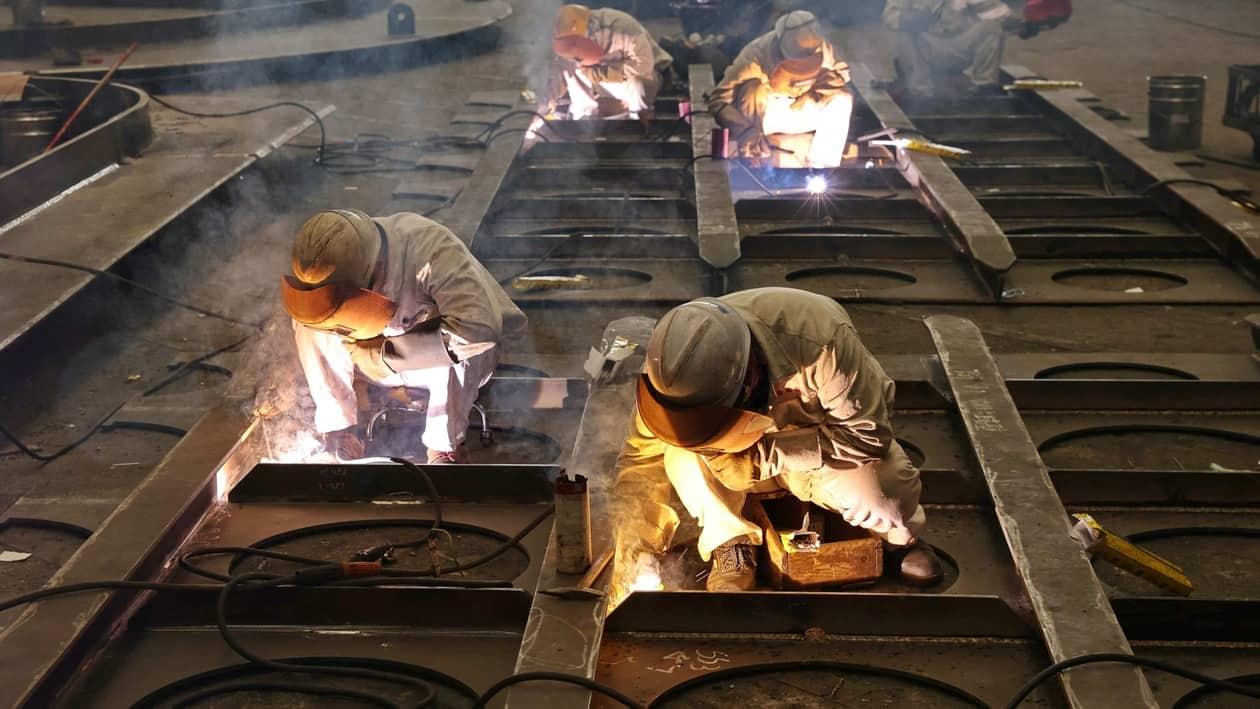Despite a weak second-quarter performance by the metal companies impacted by the higher input costs, metal stocks are soaring on Dalal Street, fueled by easing Covid restrictions in China, the largest buyer of metals, the rollback of steel export duty, and the decline in coking coal prices.
Over the past one month, the Nifty Metal index has increased by nearly 7.03 percent, with the last week accounting for the majority of those gains at 4.99% outpacing the benchmark Nifty50 return of 2.90 percent over the same time period.
Jindal Stainless, Jindal Steel and Power and Hindalco Industries were the top gainers in the metal index over the past week, with gains of over 16.2%, 10.2% and 7.8% respectively. Other stocks, including Tata steel, Hindustan Copper, and Hindustan Zinc, have gained 4–6% over the same time period.
According to recent media reports, China is easing its Covid restrictions across major cities, which have been in place for a long time. Relaxing the COVID rules will stimulate industry activity, which will increase demand for metals as China is a major buyer of metals in global markets.
In addition to that, China is also implementing new policies to boost the property sector. To ensure the real estate market's steady and healthy growth, the country's financial regulatory departments have introduced a wide range of policies since the beginning of November, covering credit, bonds, equity financing, presale supervision funds, and mergers and acquisitions of real estate developers, among others, to ensure the property market's stable and healthy development, according to media reports.
Besides, the Indian government, on November 19, rolled back the export duty imposed on steel in May this year. This could lead to more opportunities for domestic steel producers to export their products, which could increase demand for steel and drive up domestic steel prices.
ICICI Direct Research said that the removal of export duties augurs well for domestic steel players, albeit over a longer-term horizon.
However, since May 2022, global steel demand has become muted, which has caused steel prices to decline. Since steel prices are now subdued on the international markets, export quantities are projected to increase significantly when prices rise internationally.
"The recent step of removal of export duty on steel products does provide an opportunity for domestic players to enhance their export volume, notably as and when international steel prices strengthen," the brokerage added.
Furthermore, coking coal prices have dropped significantly in recent times which, according to industry experts, will help steel companies expand their margins. International coking coal prices (f.o.b. Australia) fell 21% to $247.45 per tonne in the month of November, as per media reports.
India's steel ministry has asked the finance ministry for a waiver of import tax on coking coal, among a slew of other raw materials, as it scrambles to fill a shortage of steelmaking ingredients, Reuters reported, quoting government sources.
The proposal to scrap levies ranging from 2.5% to 7.5% in the world's second-biggest producer of crude steel comes ahead of the national budget for 2023/24 set to be unveiled in February.
If agreed, the tax waiver on the raw materials would cost about 37 billion rupees ($449 million), reports said.
Imports of coking coal meet about 85% of India's annual requirements of about 50 million to 55 million tonnes.
Australia is India's top supplier, and a free trade pact between New Delhi and Canberra that takes effect on Dec. 29 allows duty-free imports of coking coal by India, as per the report.
Disclaimer: The views and recommendations made above are those of individual analysts or broking companies, and not of MintGenie.
